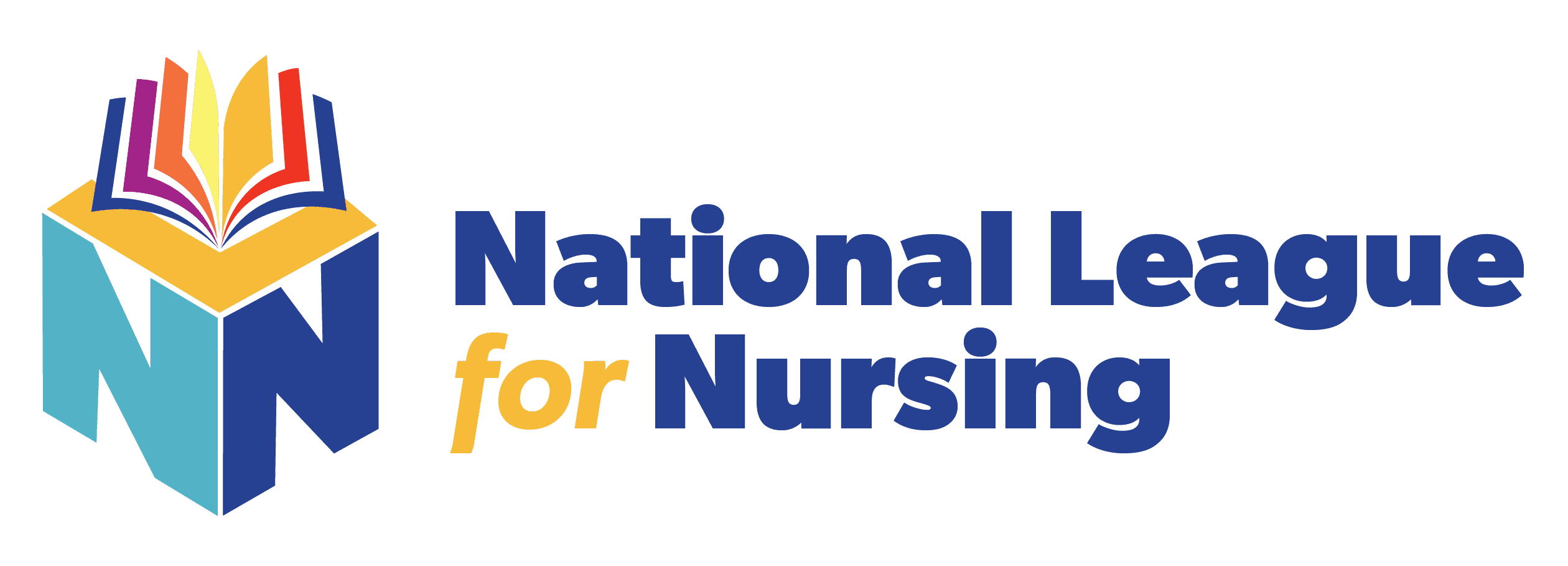NLN Celebrates National Nurses Week with “The Top 10 Fascinating Facts about Nursing Education”
NLN Celebrates National Nurses Week with “The Top 10 Fascinating Facts about Nursing Education”
Nation’s First Nursing Association & Leading Voice for Nursing Education
Washington, DC — With the kickoff today of National Nurses Week, the National League for Nursing celebrates the extraordinary contributions of America’s nurses with The Top 10 Fascinating Facts about Nursing Education. Showcasing how nursing education and nurse educators have made a leading difference to the profession for over 130 years, the League supports this year’s American Nurses Association sponsored National Nurses Week theme of “Nurses Make the Difference.”
“It is important to recognize that the too often ‘unsung heroes’ of the nursing workforce are the dedicated faculty who prepare nursing graduates to seamlessly transition to practice and provide outstanding care that all Americans want and need,” said NLN Chair Patricia Sharpnack, DNP, RN, CNE, NEA-BC, ANEF, FAAN, Dean and Strawbridge Professor at the Breen School of Nursing and Health Professions at Ursuline College in Ohio.
“We are delighted to present this Top 10 list to present a fuller picture of how nursing education has grown and changed over the years. These include different aspects of the evolution of nursing education, including higher standards of excellence, increased sophistication of instruction, more rigorous scholarship, and the variety of pathways now available to people who aspire to become nurses,” said NLN President and CEO Beverly Malone, PhD, RN, FAAN.
The Top 10 Fascinating Facts about Nursing Education
10. The first nursing schools in the United States were established in the late 19th century, with three pioneering nursing programs that opened in 1873: the New York Training School at Bellevue Hospital, the Connecticut Training School at the State Hospital, and the Boston Training School.
9. The first nursing association in the U.S. – today known as the National League for Nursing – was established in 1893 by a group of visionary nursing superintendents seeking to standardize and improve education across nursing schools.
8. Early nursing education programs were primarily hospital-based, but by the mid-20th century many programs were moving out of hospitals and into institutions of higher education.
7. Today, there are nearly 3,000 schools of nursing in the U.S. offering bachelor’s, associates, and licensed vocational nursing programs, with more than 600 that offer advanced degrees in nursing.
6. Nurse educators must hold an advanced degree, such as a master’s or doctorate in nursing or a related field, to be qualified to teach in academic settings.
5. The National League for Nursing promotes core competencies for the specialized role of nurse educators that aim to facilitate learning in all types of nursing programs and to position graduates to provide safe, quality nursing care.
4. Nurse educators teach at all levels of academia – from practical nursing/vocational programs to advanced degree programs – or in clinical settings, and some continue to practice nursing while teaching and mentoring.
3. More than 15,000 nurse educators have earned their Academic Nurse Educator certification (CNE®) since the program began in 2005. Nurse educators also can be certified as a clinical academic nurse educator (CNEcl®) or a novice nurse educator (CNEn®).
2. Nurse educators are leaders and scholars, with opportunities to direct nursing schools, conduct research, obtain grants, publish in peer-reviewed scholarly journals, and innovate advances in nursing education and practice.
And the #1 Top Fascinating Fact about Nursing Education:
1. Being a nurse educator is a rewarding way to make an impact on workforce diversity, the present and future of nursing, and patient care by teaching and shaping the current generation of nurses, as well as envisioning and preparing the next!
For more information about nursing education, visit NLN.org.
#####
About the National League for Nursing
Dedicated to excellence in nursing, the National League for Nursing is the premier organization for nurse faculty and leaders in nursing education. The NLN offers professional development, networking opportunities, testing services, nursing research grants, and public policy initiatives to its nearly 45,000 individual and 1,000 institutional members, comprising nursing education programs across the spectrum of higher education and health care organizations. Learn more at NLN.org.
